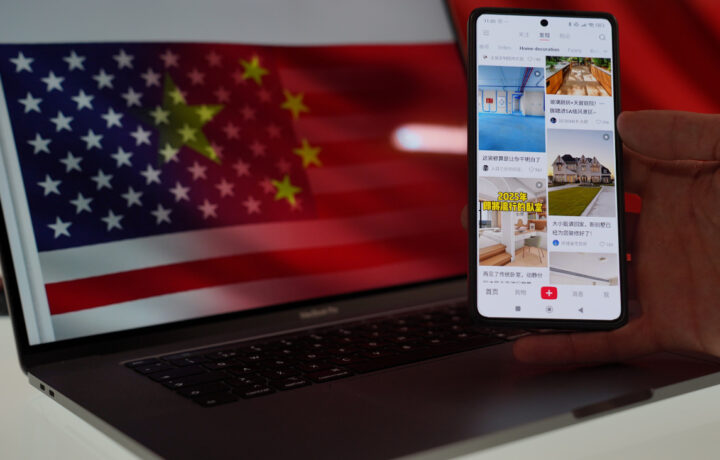In a unanimous decision, the United States Supreme Court upheld the ban on TikTok, the popular social media app citing the concerns of lawmakers that it is a national security threat.
There is no doubt that, for more than 170 million Americans, TikTok offers a distinctive and expansive outlet for expression, means of engagement, and source of community,” the court wrote in the unsigned ruling.
“But Congress has determined that divestiture is necessary to address its well-supported national security concerns regarding TikTok’s data collection practices and relationship with a foreign adversary,” the justices added. “For the foregoing reasons, we conclude that the challenged provisions do not violate petitioners’ First Amendment rights. The judgment of the United States Court of Appeals for the District of Columbia Circuit is affirmed.”
Perhaps expecting this decision, there has been a wave of so-called “TikTok refugees” heading to RedNote, the international version of Xiaohongshu (translated to “Little Red Book”). While there haven’t been calls to ban that app yet, legal experts told ClearanceJobs it will likely have the same issues for those whose jobs require the handling of classified materials.
“RedNote is just as much a security concern as TikTok for those holding a security clearance because the Chinese app will also have access to personal and confidential information on your cellphone that a holder may possess,” warned Tully Rinckey PLLC Founding Partner Greg Rinckey.
The problems go much further than TikTok and RedNote. All social media platforms, especially those that aren’t American-based could be a serious red flag for clearance holders.
“Security clearance holders as a general practice should avoid using foreign-based social media applications, and RedNote seems no different,” explained Brad Moss, a partner in the law offices of Mark Zaid.
Moss, who specializes in litigation on matters relating to national security, federal employment, and security clearance law, recommended that “Security clearance holders simply need to avoid this part of the social media ecosystem just as they have done for years now.”
A Problem Beyond TikTok and RedNote
There has already been a backlash from some TikTok users as they make their way to RedNote and similar platforms. On those platforms and others, the sentiment has been that all the platforms collect data and that if you know this going in, it should be acceptable to use the apps, regardless of their Chinese ownership.
Cybersecurity researchers have taken a much different view.
“Liberty can only thrive when paired with accountability,” Ted Miracco, CEO of cybersecurity provider Approov. “As the Supreme Court shutters TikTok, it’s a reminder that safeguarding freedom of speech means not just shouting into the void, but doing so with transparency and responsibility. Regardless of where a platform originates, our online spaces must be protected from manipulation to uphold the integrity of our perspectives.”
Moreover, the issue of data collection isn’t limited to just these foreign apps. But that doesn’t mean users should be open to allowing China to gather it – and one only needs to remember that Beijing has banned Western apps for the very same concerns, but also because of the worry of foreign influence.
“There are some valid concerns about the involvement of government agencies in espionage and influence operations that are important issues to address,” explained Lawrence Pingree, vice president of technical marketing at Dispersive.
“Things like data sovereignty, isolation networks, and access, regular trusted third-party audits, background checks, authentication of remote employees, and potentially source code review are prudent measures to require,” Pingree told ClearanceJobs. “Bans need to consider the totality of the situation and of course the politics of the time.”
Where Should Users Go?
It is also true that many users on social media are making their livelihoods through the platforms – and there may be no easy solution.
All social networks should be looked at more closely suggested technology industry analyst Rob Enderle of the Enderle Group. He told ClearanceJobs, “There is no truly good social media platform because they sell information on their users as part of how they make money.”
Accepting it shouldn’t be the solution either, he added.
“Some users are OK with that as long as the information isn’t being used against them but given none of these services has any control over the information once sold, this makes the entire class risky regardless of who owns it,” Enderle continued.
“RedNote may be even worse than TikTok because that service appears to be more purely Chinese in leadership while TikTok has a lot of non-Chinese executives and at least is trying to work with the U.S.,” Enderle cautioned. “Though I should also point out that while the potential for harm does exist, so far, I’ve seen no evidence of it.
This approach, to mitigate a future possible crime, might make sense; yet, it does go against how laws are typically enforced in the United States. As Enderle noted, it is like punishing someone who has both motive and opportunity before any crime is committed.
As for clearance holders specifically, the best answer may be to reduce the presence of social media – and to avoid platforms that could be seen as problematic.
“While the possible TikTok ban could be scaring the public, it is a good reminder for security clearance holders to remember the power of the information they have access to and the threat to our national security it may cause if that information were to end up in the wrong hands or an adversary nation,” said Moss. “If you hold a security clearance you should not be on social media, period!”




